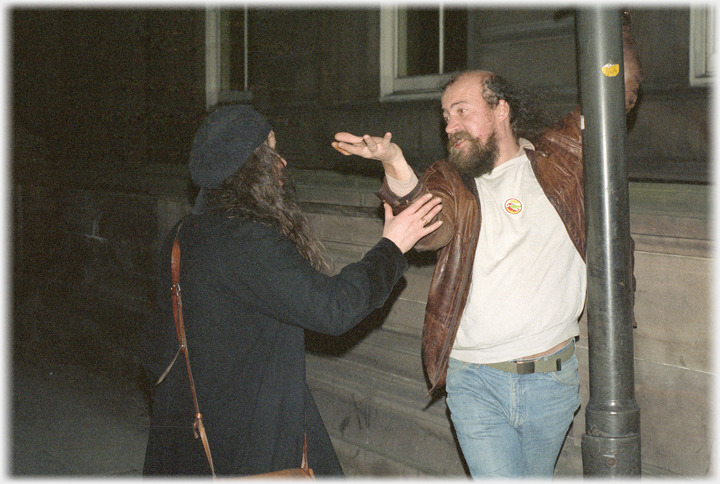
Unitary Selves
...there must be a condition which precedes all experience, and which makes experience itself possible...This pure original unchangeable consciousness I shall name transcendental apperception...This transcendental unity of apperception forms out of all possible appearances...
Immanuel Kant (1781)

Harry [The Steppnwolf] consists of a hundred or a thousand selves, not of two...Every day new souls kept springing up beside the host of old ones, making clamourous demands and creating confusion; and now I saw as clearly as in a picture what an illusion my former personality had been.
Herman Hesse (1927)

OK Kant gets no points for writing memorable succinct prose. But this idea is so pervasive that it is worth an obscure quote. He is affirming that to have consciousness of a world we have to experience that consciousness as unitary: the bits have to belong ineluctably
together.
 How sure are we of this ‘self’ in the first place?
Normally this seems incontrovertible. Until, that is, an R. D. Laing confronts us with the The Divided Self, or a Hesse creates the Steppenwolf - a glittering display which splinters into the multiple persona inhabited by his hero. A grand conception indeed, but cracks appear in consciousness’s proposed unity without going so far. Mundanely a mere move of location, or of role, serves to reveal fissures: from work to home; between being a brother and being the head of sales. And recreational drugs open ‘doors’: ‘refreshed’, our consciousnesses may enter unconnected realms; one persona
partying
How sure are we of this ‘self’ in the first place?
Normally this seems incontrovertible. Until, that is, an R. D. Laing confronts us with the The Divided Self, or a Hesse creates the Steppenwolf - a glittering display which splinters into the multiple persona inhabited by his hero. A grand conception indeed, but cracks appear in consciousness’s proposed unity without going so far. Mundanely a mere move of location, or of role, serves to reveal fissures: from work to home; between being a brother and being the head of sales. And recreational drugs open ‘doors’: ‘refreshed’, our consciousnesses may enter unconnected realms; one persona
partying
 The bedrock of our social selves, may not sit easily with our intellectual selves.
The bedrock of our social selves, may not sit easily with our intellectual selves.
in a way unimaginable to its self. And the telltale bilateral casualty -
time

More on time and its Janus faces of music and stories.
is re-imagined.
The parts of the Kant quote come from page 107/8 of the first edition of the Critique of Pure Reason, Norman Kemp Smith translation (1929). The lines from Steppenwolf appear on page 70 and 151 of the Penguin edition translated by Basil Creighton (1929).
Two friends cavorting under Regent Bridge in Edinburgh in the wee small hours; their consciousness of time definitely altered.
Above, hovering on blue introduces a link: click to go, move away to stay.

Saturday 9th July 2022
 ...guide to this site
...guide to this site